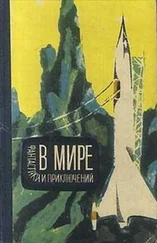Валентина Журавлева - Stone from the Stars
Здесь есть возможность читать онлайн «Валентина Журавлева - Stone from the Stars» весь текст электронной книги совершенно бесплатно (целиком полную версию без сокращений). В некоторых случаях можно слушать аудио, скачать через торрент в формате fb2 и присутствует краткое содержание. Жанр: Фантастика и фэнтези, на английском языке. Описание произведения, (предисловие) а так же отзывы посетителей доступны на портале библиотеки ЛибКат.
- Название:Stone from the Stars
- Автор:
- Жанр:
- Год:неизвестен
- ISBN:нет данных
- Рейтинг книги:4 / 5. Голосов: 1
-
Избранное:Добавить в избранное
- Отзывы:
-
Ваша оценка:
- 80
- 1
- 2
- 3
- 4
- 5
Stone from the Stars: краткое содержание, описание и аннотация
Предлагаем к чтению аннотацию, описание, краткое содержание или предисловие (зависит от того, что написал сам автор книги «Stone from the Stars»). Если вы не нашли необходимую информацию о книге — напишите в комментариях, мы постараемся отыскать её.
Stone from the Stars — читать онлайн бесплатно полную книгу (весь текст) целиком
Ниже представлен текст книги, разбитый по страницам. Система сохранения места последней прочитанной страницы, позволяет с удобством читать онлайн бесплатно книгу «Stone from the Stars», без необходимости каждый раз заново искать на чём Вы остановились. Поставьте закладку, и сможете в любой момент перейти на страницу, на которой закончили чтение.
Интервал:
Закладка:
"My dear friend," said Nikonov. "You are a leading biochemist, the biggest authority on biochemical synthesis," he made a mock bow, his calm, whimsical self again. "As far as the synthesis of proteins is concerned, I agree with you entirely. But you will forgive me if I say that one may know a great deal about making bricks without knowing much about architecture."
I did not take offense. Frankly speaking, I had never given much thought to the evolution of organic matter on other planets. After all, it was not my field.
"The medieval conception of man with dogs' heads living at the other end of the world did turn out to be nonsense," Nikonov went on. "But with the exception of climate, conditions on our Earth are everywhere more or less the same. And where they do differ, man differs as well. In the Peruvian Andes, at a height of three and a half kilometres, there lives a tribe of undersized Indians whose average weight is no more than fifty kilograms, but whose chest and lung expansion is one and a half times that of the average European. The process of adaptation to life in a rarified mountain atmosphere has gradually changed the physical characteristics of the organism. Now just imagine how different from conditions on our Earth life on other planets may be. There is the force of gravity, to begin with. You seem to have forgotten about that. On Mercury, for example, the force of gravity is one-fourth that on Earth. If people existed on Mercury they would hardly need highly-developed lower limbs. And on Jupiter the force of gravity is much greater than on Earth. For all we know under those conditions the evolution of vertebrates might not have led to a vertical posture of the body at all."
I saw an obvious flaw in that argument and I seized my opportunity.
"My dear friend," I said. "You are a prominent astrophysicist, the greatest living authority on spectral analysis of stellar atmospheres. So long as you stick to the planets I agree with you entirely. But one may know all about making bricks... What I meant to say is that you have forgotten about hands-without hands there can be no labour and it is labour that created man, when it comes to that. But if the body is in a horizontal position all four limbs would be needed for support."
"Yes, but why should four be the limit?"
"Men with six arms?"
"Perhaps. On planets where the force of gravity is very great the vertebrates would most likely develop precisely in that direction. But there are other factors. The condition of the planet's surface, for instance. If the Earth had been permanently covered with oceans the evolution of the animal world would have taken an entirely different course."
"Mermaids?" I jokingly suggested.
"Possibly," Nikonov replied imperturbably. "Life in the ocean is constantly developing although much more slowly than on dry land. There are certain things essential to ail rational beings, wherever they happen to live: a developed brain, a complex nervous system, and organs enabling them to work and move. But this is hardly enough to give one any real idea of their general appearance."
"But surely," I persisted, unwilling to yield, "it is not altogether unlikely that thinking beings resembling ourselves may live on planets with conditions similar to our own, is it?"
"It is not impossible," he agreed. "But highly improbable. You disregard one very important factor-time. Man's appearance changes. Ten million years ago our ancestors had tails and no foreheads. How do we know what men will look like ten million years hence? It would be absurd to assume that man's appearance will never change. You talk about similar planets. True, there are planets with conditions similar to our own. But it is hardly likely that the evolution of rational beings on these planets would coincide in time as well. In a word, my dear friend, 'There are more things on heaven and earth...' "
I cannot remember all the details of that conversation. There were so many interruptions-the telephone rang constantly, people hurried in and out of the room and Nikonov kept consulting his watch. Yet looking back at it now it seems to me that that conversation was in itself significant. For fantastic as our surmises might have seemed, the reality exceeded our wildest speculations.
It all seems simple enough to me now. If a ship from another planetary system reached us through boundless space, knowledge on that unknown planet had clearly advanced to a degree far beyond our earthly conception. That alone should have warned us not to jump to conclusions.
The arrival of Academician Astakhov, a specialist in astronautical medicine, cut short our conversation.
"What sort of an engine has it?" he demanded from the threshold.
He stood in the doorway, his ear cupped in his hand, waiting for an answer.
I felt annoyed with myself for not having asked that obvious question. The answer would have told us many things-the technical level of the newcomers, the distance they had flown, how much time they had journeyed in space, what rates of acceleration their bodies could endure...
"There is no engine," said Nikonov. "The metallic cylinder underneath the stone envelope is absolutely smooth."
"No engine?" echoed Astakhov. He pondered this in silence for a few minutes, a look of profound amazement on his face. "But in that case... In that case they must have a gravitational engine."
"Yes," nodded Nikonov. "That's the answer, most likely."
"Can you power a ship by gravitation?" I asked.
"Theoretically you can," Nikonov replied. "There is no natural force which man will not eventually be able to understand and subdue. It is only a matter of time. True, so far we know very little about gravitation. We know Newton's law: every body in the Universe attracts every other body with a force that is directly proportional to the product of their masses, and inversely proportional to the square of the distance between their centres. We know, theoretically at least, that the only limit to gravitational acceleration is the speed of light. But that is about all. But the cause, the nature of gravitation-that we don't know."
The phone rang again. Nikonov picked up the receiver, answered briefly and hung up.
"Come," he said to us. "They are waiting for us."
We went out into the corridor.
"Some physicists believe that gravitation is a property of a specific type of particles called gravitons. I am not quite sure of that hypothesis. But if it is true, then the gravitons ought to be as much smaller than atomic nuclei as the atomic nuclei are smaller than ordinary bodies. The concentration of energy must be immeasurably greater in such minute dimensions than in the atomic nucleus."
We hurried down the steep winding staircase leading to the basement and along a narrow corridor. A group of institute personnel were waiting for us outside a massive metal door. Someone pressed a button and the door moved slowly aside.
There was the space ship: a cylinder of some dark and very smooth metal, resting on two supports. The stone outer covering, cracked in several places, had been removed. Three fine wires hung from the base of the cylinder.
Nikonov who stood closer than the others to the cylinder took a step toward it and at once a muffled knocking sounded from within. It was not the rhythmic mechanical beat of a machine. It suggested the presence of some living creature. It occurred to me that it might be some animal-after all, had we not sent monkeys, dogs and rabbits up in our own space rockets?
Nikonov moved away and the knocking ceased. In the ensuing silence someone's hoarse breathing could be distinctly heard.
Strangely enough, no thought of the new epoch that had dawned for science entered my mind at that moment. It was only afterwards in recalling the scene that I found every detail of it stamped on my memory: the low-ceil-inged room flooded with electric light, and in the middle -the dark, gleaming cylinder, and the tense, excited faces of the men gathered around it.
Читать дальшеИнтервал:
Закладка:
Похожие книги на «Stone from the Stars»
Представляем Вашему вниманию похожие книги на «Stone from the Stars» списком для выбора. Мы отобрали схожую по названию и смыслу литературу в надежде предоставить читателям больше вариантов отыскать новые, интересные, ещё непрочитанные произведения.
Обсуждение, отзывы о книге «Stone from the Stars» и просто собственные мнения читателей. Оставьте ваши комментарии, напишите, что Вы думаете о произведении, его смысле или главных героях. Укажите что конкретно понравилось, а что нет, и почему Вы так считаете.








